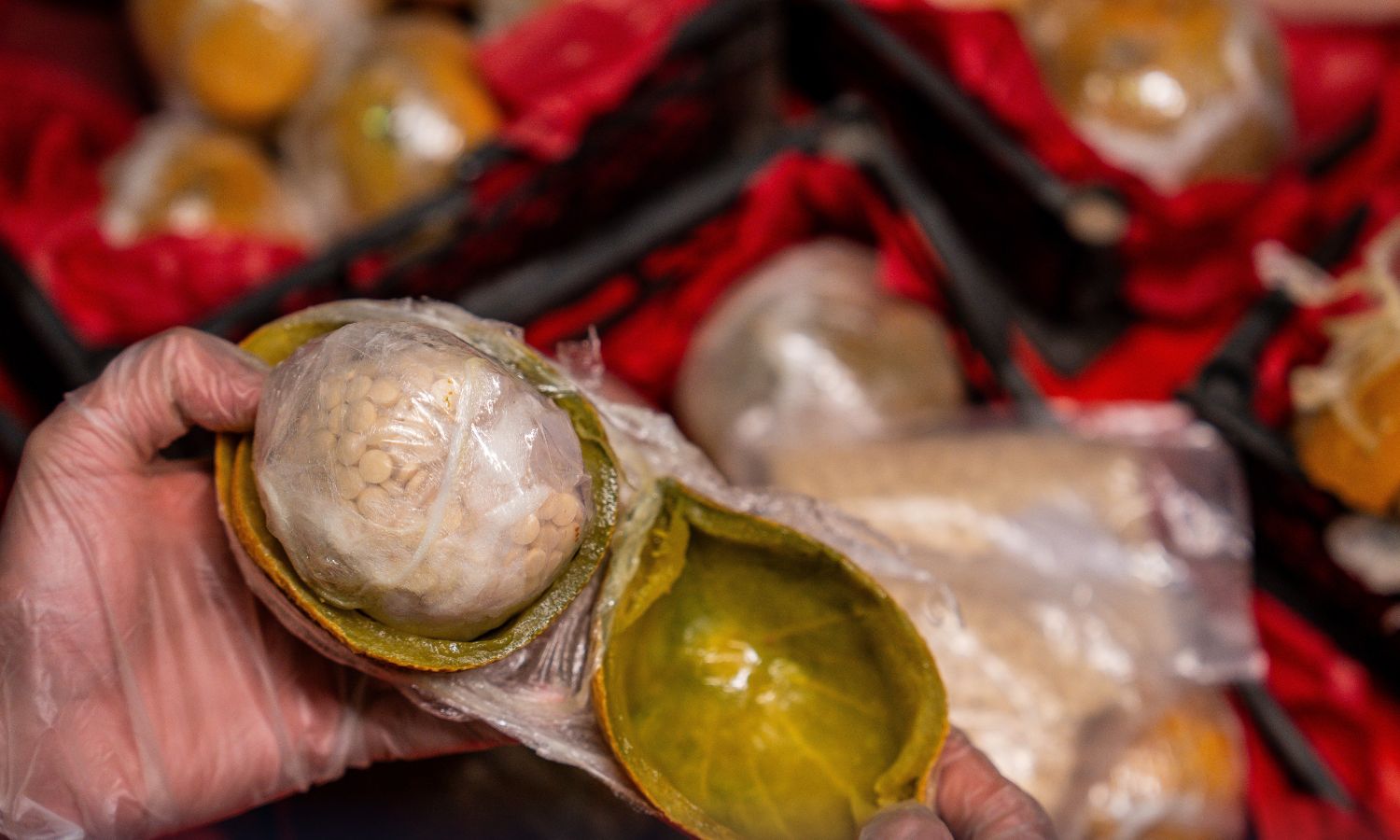



The Saudi Zakat, Tax and Customs Authority announced the seizure of more than a million pills of the Captagon drug, which were found hidden in a shipment of melons in the port of Duba, coming from abroad.
The Authority stated on its official website on Sunday, March 31, that it found the quantity of pills wrapped and hidden inside cavities in melons during an inspection and examination operation of one of the trucks coming through the seaport.
After the seizure was completed, the authority coordinated with the General Directorate for Narcotics Control and managed to apprehend the recipients of the shipment within the kingdom.
On a daily basis, the Saudi Directorate for Narcotics Control announces the arrest of promoters of the Captagon substance within the kingdom, where it detained 19 people within a single week, including foreigners whose nationalities were not specified.
While Saudi Arabia did not point to who was responsible for the entry of drugs into its territory, suspicions point to the Syrian regime, considered the main source of the narcotic pills. The “Arab Initiative” for a solution in Syria included a clause to address the neighboring countries’ concerns about drug smuggling from Syria in its second phase.
Previously, a study issued by the Center for Operational Analysis and Research (COAR) at the end of April 2021, clarified that Syria has become a global hub for the production of the Captagon drugs, and that it has become more manufacturing and technologically advanced in the production of drugs than ever before.
On March 5, the Saudi authorities announced thwarting two smuggling attempts on the Saudi-Jordanian borders for more than 63,000 Captagon pills, which were found hidden in two vehicles, that had entered the kingdom through the Haditha border crossing with Jordan.
The continued trafficking of Captagon comes soon after the Quartet cell was expanded to combat drug smuggling at the regional level, which was initially formed on February 17, following a meeting of the Interior Ministers of Jordan, Lebanon, Iraq, and the Syrian regime, to become a Quintet cell with the joining of Egypt.
In the middle of last year, the head of the Foreign Relations Committee in the US Senate, Bob Menendez, stated that Bashar al-Assad is “a war criminal, and runs a narco-state.”
Menendez criticized through “X” the Arab normalization efforts with the regime, pointing out that they overlook his abuses, as the continued drug trafficking poses a threat to the region’s communities. Also, American politicians criticized the Syrian regime for organizing drug trafficking in the region.
if you think the article contain wrong information or you have additional details Send Correction